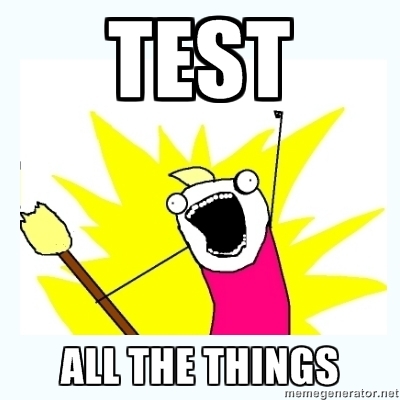Wow,
this week’s readings were so great. I feel like these readings, in some ways
for the first time in this initial semester of our licensure program, are
delving into the biggest challenges of becoming a “good” teacher: teaching
across difference and the relationship between identity and the classroom. These
topics are so vital, and so often it is really difficult to make adequate space
for these conversations in our daily lives and in our workplaces. I entered
this field because I want to be a part of transformative school culture, where
students and teachers actually work together to combat the systems of
oppression that often guide our school spaces. I believe in the power within
communities to work against oppressive schemas and change the tracking that
occurs, but it takes real engagement with one another in a way that can feel
uncomfortable and, especially for those of marginalized identities, can be
unsafe unless we are careful and intentional about making everyone a part of
the process of preparing that sharing space. I am very interested in what it would
look like to co-create schools where engaging with our issues of identity is an
integral part of our community. I believe that this is a strength of some of
the most successful schools.
I appreciate
Lenters’ assertion that ongoing literacy instruction, choice of text, and
respect for students’ “out-of-school literacy” can help our students remain
engaged in the effort to improve literacy. As she notes, interest and identity
are vital to students ownership of their learning. Students who enjoy school time
will be more motivated – they will enjoy school time more if they feel their
teachers actually know them. Students need to be able to see themselves in the
physical parts of school – in the books, in the classrooms, in the mirror the
teacher is holding up for them as they teach about society and how it
works. If the mirror a teacher holds up
for students reflects whiteness & dominant culture, how does that affect
students’ ability & desire to learn – both for white and non-white
students? How does lumping students together into groups without context affect
their ability to feel they belong to the community? How will we honor different
Discourses, ways of speaking, acting, and behaving in the world, as equal to
and not less than the dominant Discourse?
Recognizing and
celebrating our students’ differences is an important step, but part of that
process has to be about our own self-reflections on who we are, and what we bring
to the classroom as the teacher. I am an individual who is situated within a
culture, a context and a history. It’s going to be very different for me as a
White woman to teach James Baldwin & Ralph Ellison texts than it is going
to be for a Black woman, or a Hmong-American man. So this part of the process
of understanding identity is for me to do on my own, and with allies in my
learning process, before I get into the classroom and to continue to do as I
engage with students. I think it’s also helpful, once the skills have been
learned and practiced, for the classroom to be a space for honesty and dialogue
about racial and cultural differences, and the differences between individual
beliefs, stereotypes, cultural expectations, and prejudices. Every teacher has
to decide where they are at in their process, but I think everyone has the responsibility
as a member of our vastly diverse world to be a steward to our students in
helping them learn to have these conversations respectfully and responsibly. We
can be powerful models for our students, and they can be powerful models for us
as well.
To tie this back to
reading in the content areas more specifically, a phrase in the Alvermann
chapter caught my eye: we as teachers will be “cultural brokers,” who, like
journalists and news anchors, both set and disseminate the “power code.” The
“power code” is the accepted & necessary language with which we access
power through education, work, and navigating the dominant culture. Our
students need this information to “succeed” in the dominant culture. But I
think this week’s readings are pointing out that the “power code” is definitely
not the only code our students need to be successful, to feel grounded in
themselves and in their community, and to feel that they belong to something
greater than themselves that is worth working for. Teaching the “power code”
isn’t enough – our students deserve more than that, and we do too.
